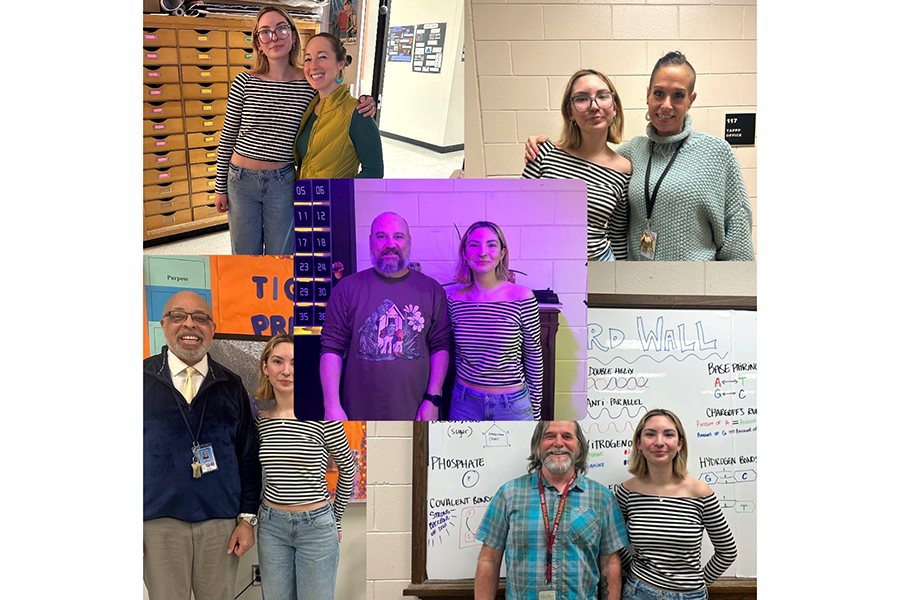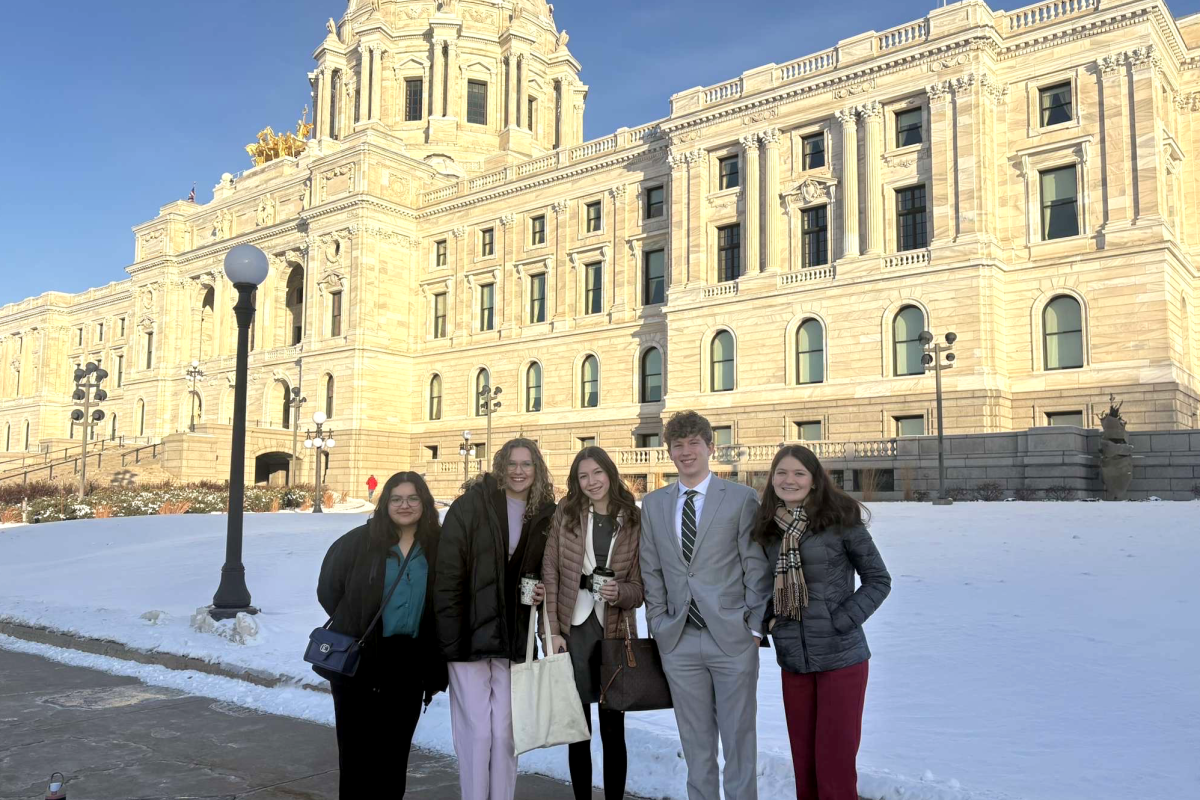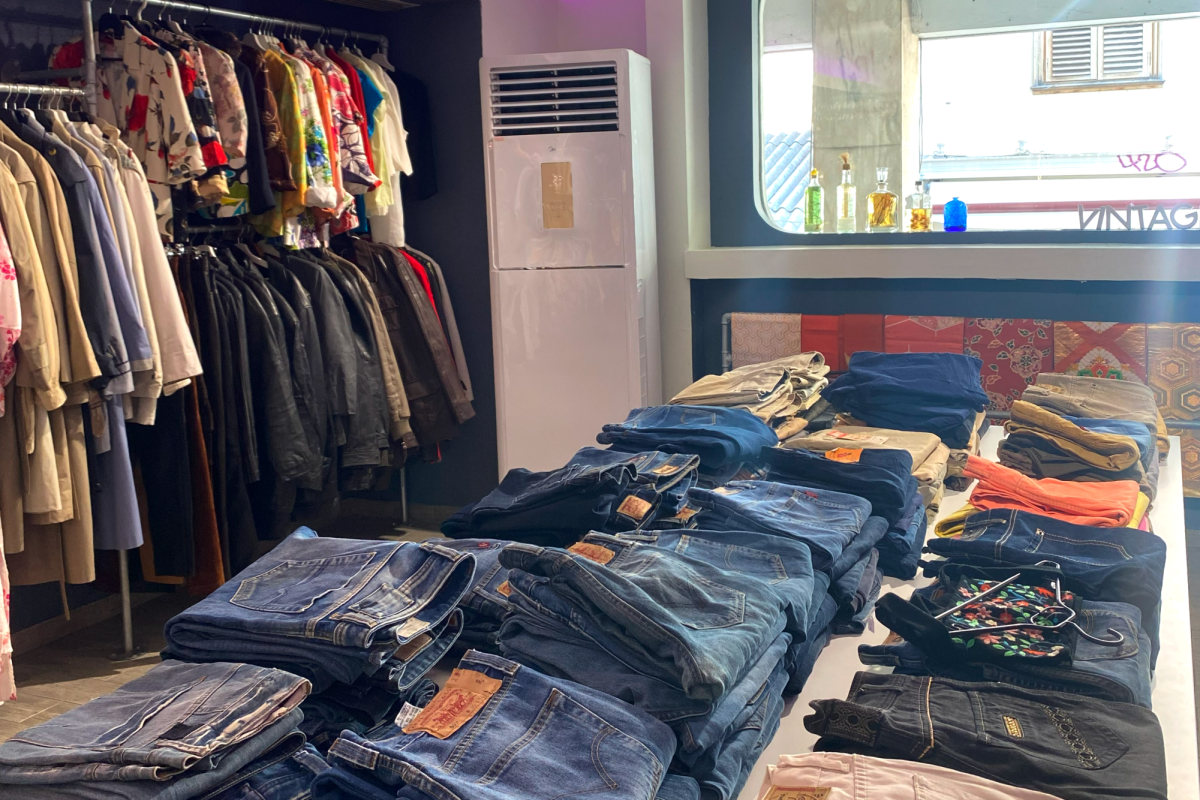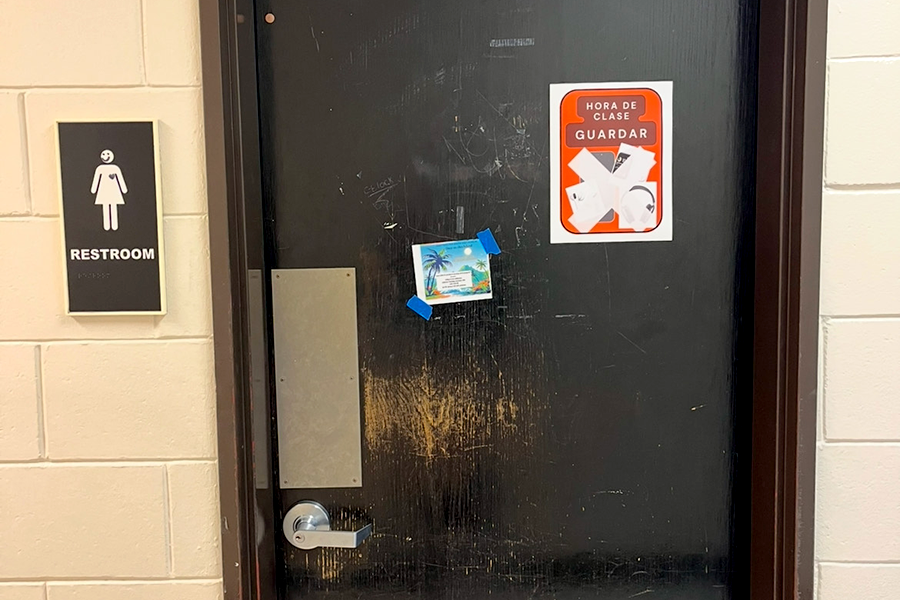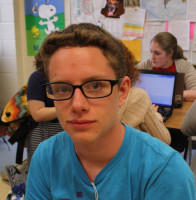Looking around the classroom, most of Joe Delaney’s students wouldn’t notice anything unusual among the cluttered lab tables and small desks, but on a recent Wednesday afternoon, two small tokens of this teacher’s life adventures disrupted the normality: a wolf mask and miniature statue, both over fifty years old and from another country.
From participating in the first Peace Corps in the sixties, to inventing the solar powered wheelchair with South students in the eighties, Delaney has led no ordinary life.
But even with the many adventures under his belt, Delaney says teaching at South is the one accomplishment he’s proudest of.
“From all my experiences the most interesting thing about me is that I teach at South,” Delaney said, smiling as he picked up scraps of paper off a desk.
“This is a school where people want to be and I do what I love.”
On March 1st of 1961, President Kennedy signed Executive Order 10924 which officially started the Peace Corps, a volunteer program run by the US government whose mission included three goals; providing technical assistance, helping people outside the United States to understand American culture, and helping Americans to understand the cultures of other countries.
The US began recruiting in 1962, making all applicants take a placement test that tested both general aptitude and language aptitude. The first two countries the Peace Corps volunteers were sent to were Tanzania and Ghana, two developing African countries that Kennedy saw as in need of assistance.
Delaney headed overseas to Ghana in 1963 where he served in the city of Kibi for two years, teaching science at Abusco State College. “The school had 405 students and there was only fifteen staff, and only two of us had college degrees,” Delaney said. “I practiced teaching there. I taught in the classroom forty hours a week; here it’s twenty five.”
While teaching, Delaney noticed the difficulty Ghanaians had with heating water. “My thought was instead of people tearing down the forest to have a little fire to cook, if they had solar furnaces it would be right there,” he said. So, while still teaching physics, Delaney gathered a few local Ghanaians and built a solar furnace that could boil water instantly, saving time and trees.
“I made a shell of concrete and sculpted a paraboloid dish in the earth made out of clay, six feet across and I lined it with chicken wire,” described Delaney. “I had local people dab on some concrete…then we took broken mirrors from the mirror factory, the only factory they had, and stuck those on using a little bit of concrete.”
In the end, Delaney, with the help of a few locals, had created a giant solar furnace that could boil water instantly without the hassle of lighting a fire. “You could heat it every day, and you’re near the equator so the sun is very intense.”
But Delaney was in Ghana to teach; building a solar powered furnace was just on the side. “I wasn’t there to build things, I was there just to teach. I just did that as an example, I wanted to get people to start making their own solar furnaces.”
The solar furnace would not be the last solar project of Delaney’s; twenty-three years later as a science teacher at South, Delaney built the first solar powered wheelchair. “I deliberately set out to ‘hot dog it’, to show what we learn in physics is of interest to the rest of the world.”
Delaney built the wheelchair to demonstrate it to his science club at South, and was featured on Channel 5 for his work.
“I got a wheelchair out of the junkyard and designed a solar panel, a Photo Volta ray. I made it like an umbrella over the wheelchair and it worked very well without batteries. You could go as far as you wanted as long as the sun is shining.”
However, the news stations were not the only people interested in Delaney’s invention. “A few people called me wanting to invest in it, but I have absolutely no business sense so I didn’t pursue that at all.”
With over fifty years of teaching, starting in the Peace Corps, and two inventions that were both built solely to help others, Delany is an example of someone who has done what he loves for a living and expresses that in his advice to South students being for them to, “do what you love.”



